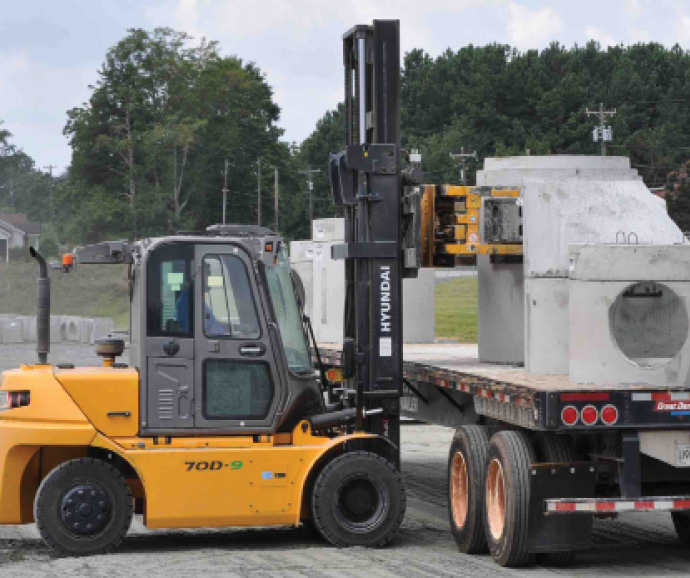The National Right to Work Legal Defense and Education Foundation Inc. is assisting employees at US Brick Holdings’ Mooresville, Ind. clay brick and mine operation in their pursuit of a National Labor Relations Board-administered vote to decertify Teamsters Local 135, Indianapolis, as collective bargaining representative for the site’s 33-member unit.
Based in Springfield, Va., the Foundation has filed a Request for Review centered on an NLRB Region 25 decision dismissing a December 2021 petition through which Kerry Atkins and coworkers sought a decertification vote. The new filing asks the five-member Board to overturn the early-February 2022 decision and eliminate a non-statutory NLRB doctrine called the “successor bar,” which blocks employees’ right to vote out an unwanted union when workplace management changes hands. Region 25 Director Patricia Nachand determined that US Brick’s recent acquisition of the Indiana plant triggered the so-called successor bar, rendering the Atkins petition invalid. The Mooresville operation was part of a production and distribution asset package that General Shale and Meridian Brick sold in November 2021 to settle a Department of Justice Antitrust Division complaint challenging their merger the prior month.
Foundation staff attorneys note: a) The “successor bar” is a non-statutory policy invented by NLRB appointees that immunizes union officials from being voted out by employees for up to a year after management changes as a result of a sale, merger, or acquisition; b) Employees have a statutory right to hold decertification elections to remove union monopoly “representation” they oppose, but the “successor bar” is found nowhere in the text of the National Labor Relations Act (NLRA), which the NLRB is charged with enforcing; and, c) The NLRA’s only “bar” to holding a decertification election is if a prior NLRB election was held within the previous year. A collective bargaining agreement covering the Mooresville unit expired in October 2021.
“The NLRB-invented ‘successor bar’ is just one example of how the Board neglects its mandate to protect the rights of individual workers, including those opposed to forced union affiliation, just to protect union boss power,” observes National Right to Work Foundation President Mark Mix. “The ‘successor bar’ not only overrides the statutory right of workers to vote out unions they oppose, but does so at the very moment when workers are most likely to reevaluate their union status: the turnover of the old management that perhaps was the reason for unionization in the first place.”
“In this case the fundamental injustice of the ‘successor bar’ is compounded by the fact that one arm of the federal government—the Department of Justice—demanded the sale of this facility, which another federal agency—the NLRB—says should be grounds for blocking workers from ejecting a union they overwhelmingly oppose,” he continues. “Foundation attorneys will fight for Mr. Atkins and his coworkers until they can exercise their right to eject this unpopular union.”
Atkins’ Request for Review, moreover, contends that the “successor bar” serves no purpose other than to block the will of rank-and-file employees in favor of entrenching union bosses who ought to be accountable to the employees, while undermining “the NLRA’s core purpose of employee free choice by disregarding employees’ actual desires and past experiences with their union representative. It also fails to recognize the Board’s highest calling: to conduct elections when there is a question of representation and to ensure employees are represented by a union of their choosing.”

ANSI/ITSDF B56.1 – Safety Standard for Low Lift and High Lift Trucks.
AGENCY PROPOSES REVISIONS TO INDUSTRIAL TRUCK STANDARD
An Occupational Safety and Health Administration Notice of Proposed Rulemaking outlines updates for design and construction requirements covering forklift and other industrial trucks running on internal combustion engine or electric power. A revised powered industrial truck standard for general industry and construction would reference applicable provisions of the most relevant national consensus standards from the American National Standards Institute/Industrial Truck Standards Development Foundation.
Agency officials propose allowing employers to use powered industrial trucks not built in accordance with ANSI/ITSDF guidelines if an employer can demonstrate how a vehicle is designed in a manner providing employee protection that is at least as effective as national consensus standards incorporated by reference in OSHA standards. The proposal for 1910.178, Powered industrial trucks is part of a series of OSHA projects to update nearly 200 regulatory documents to reflect current versions of consensus and national industry standards.